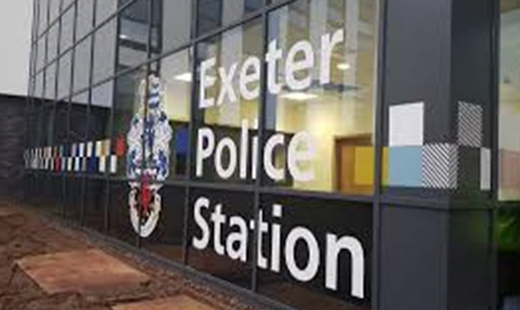
Arrested? 24 hr free help.
So what can someone arrested and held at the police station expect and what can a solicitor do to make a difference?
Arrest and interview under caution
If the police have grounds then someone can be arrested and detained at a police station. The most likely ground is to allow the “prompt and effective investigation” of the matter. This might allow the police on an arrest to search the person, their address or their vehicle. Most often “prompt effective investigation” means allowing the police to interview the person under caution. This means that the person is questioned about the suspected offence by the police officer and that exchange is recorded, often videod.
The police can detain the suspect for up to 24 hours (36 hours with a superintendents permission to extend in a very few cases). However the police have to be held to account about how long they hold someone, they have to be progressing the investigation at all times. A lawyer can help the suspect by talking to the police about whether the period of detention and timing of interview is being managed as well as it should.
Detention, like all aspects of a police investigation involving a suspect of an offence, is governed by the Police Codes of Conduct (called PACE – the Police and Criminal Evidence Act). A copy of the Codes is made available to a person detained in custody. The criminal lawyer will know to use the Codes to help their client.
Find out more about the PACE codes:https://www.gov.uk/guidance/police-and-criminal-evidence-act-1984-pace-codes-of-practice
After the suspect is arrested, they are taken to their nearest designated police station (in Devon that means either Exeter, Torquay, Barnstaple or Plymouth) and on arrival processed by the custody sergeants, who are responsible for the detention of that suspect whilst at the police station. If the suspect is vulnerable , ill or injured they may be taken to hospital or seen by a health care specialist in the police station. If the person is under 18 or is vulnerable (usually because of mental illness) an appropriate adult is appointed to help the suspect at key stages of the detention. They should ensure the suspect is treated fairly and is communicating effectively with the police.
On arrival at the police station the suspect gets the first chance to indicate if they want a lawyer to help them. They can nominate their own lawyer, so we hope our clients ask for a Trinity Advocates lawyer, or they can ask for the duty solicitor. Our criminal lawyers are duty solicitors and from time to time we will all be called on to help suspects who ask for the duty solicitor rather than for a lawyer they know.
The suspect can announce at any time whilst in detention that they want a lawyer to help them and lawyers make a promise to the legal aid agency who pay us for police station work, that we will aim to attend when needed within 45 minutes. We take that obligation at Trinity Advocates seriously. In the same way, when the suspect first asks to have the help of a lawyer then that lawyer or a colleague should be on the phone to that suspect as soon as possible. All lawyers help to the suspect at the police station is free of charge. A lawyer attending “when needed” does not mean at any time during the detention. A lawyer should attend if the police have a time for the interview but they might also attend if advice is needed on providing intimate samples or on taking part in an identification procedure or if the police want to take detention beyond 24 hours.
The suspect is kept in a cell in the police station until the police have collected enough evidence to put in interview. Until that time the custody sergeant and their staff must ensure the welfare of the suspect is protected.
The suspect should be allowed by the custody staff to talk to someone they name on the phone unless certain exceptions apply. Anything said in that call or at any time during detention by the police can be recorded and used in evidence and we usually advise our clients to be very careful what they say about anything whilst in detention, before they see their lawyer in private before the interview.
Criminal Solicitors at the police station
When the interview is ready, the lawyer attends, talks to the investigating police and finds out as much as they reasonably can about the allegation and the sort of evidence the police have or might get. This is police disclosure. The police sometimes keep a key piece of evidence from the lawyer at this stage. It is up to the experienced lawyer to realise this, try to find out as much as they can and then factor in when advising the client, what the police may have kept to themselves.
The lawyer will talk to the custody staff and read the record kept about the suspects detention (called a custody record) to find out as much as they can about the situation before they sit down in private with their client, to talk about how to respond to the interview with police. Suspects who go ahead without a lawyer don’t have that advantage of finding out from disclosure what the case against them might be before they start the recorded interview with the police. Without a lawyer, such suspects don’t get the chance to talk and think over what they are going to say, to consider how serious the consequences might be of the investigation, whether they are offering a defence or an admission and how strong the evidence is now or might turn out to be in the future, against them.
Defence lawyers don’t tell their clients what the defence is going to be: We advise our clients based on their situation and give them a chance to ask questions and then it is for the client to tell us their account (more formally called instructions). Then we give our opinion whether that instruction suggests a not guilty version of events and what the strengths and weaknesses in that account are.
Its a common mistake made that a lawyer will hear one account from their client and then support the client when they put a completely different account to police or in court. The defence lawyer advises the client if they think their defence account is weak or strong. After that the lawyer will remove themselves with the minimum of fuss from the case if the client’s account changes so much that it is no longer the account given to the lawyer in private before. Defence lawyers wont judge if their client is telling the truth or not. That’s not our job. We leave the judging to the Courts and we do our best to prove that the our client’s version is the right one.
The next section details more about how all interviews under caution work, but if the interview is after an arrest and detention then it sometimes takes a few hours after the interview for police to decide what will happen next. That means an hour, often much longer, waiting in a cell for a decision. The suspect will want to know if and when they are going to get released and what the next stage is. The lawyer will find out what they can and move things along if possible. At this stage the lawyer might check if the police want binding conditions attached to bail on the suspect after release. Those might be discussed with the client and then with the police. The alternative to finding agreeable conditions might be that the police decide not to release the suspect and keep them in custody until the next available court date (called remand to court). So again the lawyer can be helpful by anticipating and trying to reduce the risk of a remand. See the section on what happens after an interview below.
